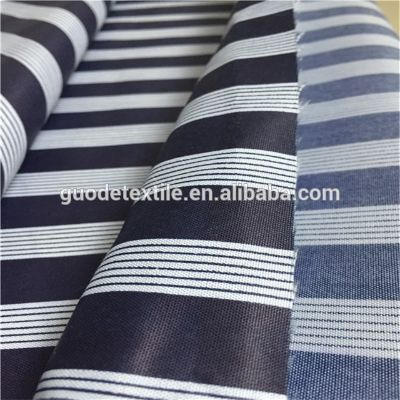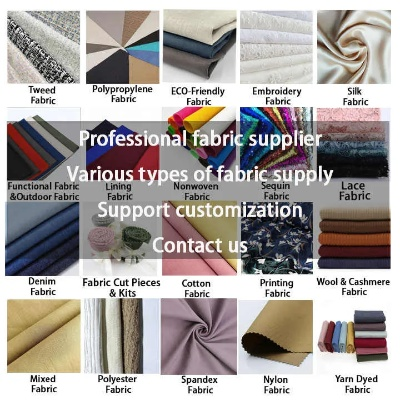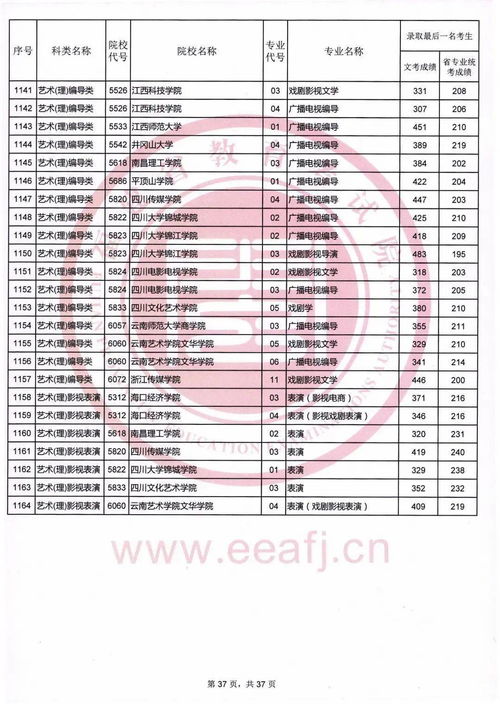The Role of Textile and Fabric Sales as a Professional
In this article, we explore the pivotal role of textile and fabric sales as a profession. As one of the most integral sectors in the global economy, the sales industry is responsible for generating significant revenue for many industries and companies. The professional responsibilities of textile and fabric sales involve understanding and analyzing market trends, customer needs, and competitive landscapes. Additionally, the sales representatives must possess excellent interpersonal skills, strong communication abilities, and a keen eye for detail to successfully negotiate deals, build relationships, and secure long-term partnerships. The success of textile and fabric sales professionals often hinges on their ability to navigate complex supply chain networks and manage inventory effectively while meeting stringent quality standards. Overall, textile and fabric sales represent a crucial aspect of the modern economy that demands specialized knowledge, adaptability, and dedication from its practitioners.
Introduction: In today's global marketplace, textile and fabric sales play a crucial role in the industry chain. These professionals not only facilitate the flow of products from manufacturers to retailers but also contribute significantly to the economic growth and cultural exchange. In this guide, we will explore the various aspects of this profession, from the basics of understanding its responsibilities to the challenges faced and solutions employed. Let’s delve into the world of textile and fabric sales.
-
Job Responsibilities: Textile and fabric sales representatives are responsible for selling a variety of products, including cotton, silk, polyester, wool, and more, across a range of industries such as apparel, furniture, home decor, and industrial uses. Their primary tasks include identifying potential customers, conducting market research, developing marketing strategies, negotiating contracts, maintaining inventory management, and ensuring timely delivery of products.
-
Market Research: To succeed in their roles, textile and fabric sales representatives must be adept at analyzing market trends and consumer preferences. They gather data on competitors, industry standards, and consumer needs through surveys, interviews, and online research. This information is critical for tailoring marketing campaigns to attract and retain clients. For example, if a client specializes in eco-friendly materials, a sales representative might focus on promoting sustainable textiles that align with these principles.
-
Negotiation Skills: Negotiation skills are essential for successful textile and fabric sales. Sales representatives need to establish fair prices while maximizing profits for both themselves and the manufacturer. They often negotiate with suppliers and buyers to secure better terms for their customers. A successful negotiation can involve offering competitive prices, flexible payment terms, or additional services to win over clients.

-
Product Knowledge: A deep understanding of the different types of textiles and fabrics is vital for any textile and fabric sales professional. Sales representatives should be able to explain the properties of each material, how it is made, and its unique features. For instance, they could provide information about the environmental impact of synthetic versus natural fibers, or the durability of polyester compared to cotton.
-
Customer Service: Customer service is paramount for the success of any sales profession. Textile and fabric sales representatives need to address customer inquiries promptly and resolve any issues promptly. They should strive to exceed customer expectations by providing exceptional after-sales support, such as customizing products or offering advice on how to best utilize them in different applications.
-
Business Development: The ability to develop new business leads is another important facet of being a textile and fabric sales representative. Sales representatives may use social media platforms, trade shows, or other networking events to build relationships with potential clients. They should also be adept at pitching their products effectively and convincing clients to make purchases.
-
Technical Support: Depending on the product type, textile and fabric sales representatives may also need to offer technical support. For instance, if a client is looking for specific fabrication techniques, they could provide detailed instructions on how to use the product effectively. This level of expertise helps build trust and loyalty within the industry.
Case Study: Let’s take a look at how one textile and fabric sales professional, Sarah Smith, approaches her job at a leading fashion retailer. Sarah has been working in this field for over five years and has developed strong relationships with many influential clients. Her dedication and commitment to customer satisfaction have resulted in steady growth for her company, which has seen a significant increase in annual revenue over the past two fiscal years. Sarah's success can be attributed to several key factors:
- She actively participates in industry conferences and workshops to stay updated with the latest trends and technological advancements in the textile and fabric industry.
- She regularly attends market research meetings where she gathers insights into consumer preferences and market demand for new products.
- Sarah is skilled in negotiating contracts with suppliers and manufacturers, securing favorable prices and terms for her clients.
- She maintains an excellent track record of customer service, responding promptly to queries, resolving complaints, and providing exceptional after-sales support.
- Sarah has built a network of contacts in the industry, enabling her to introduce clients to new suppliers or recommend products that meet their specific requirements.
Conclusion: Textile and fabric sales is a dynamic profession that requires a keen eye for detail, a willingness to learn, and a passion for connecting people and ideas. By embracing the challenges inherent in the job and continually striving to improve their skills, textile and fabric sales professionals can achieve great success in their careers. As Sarah Smith demonstrates, hard work, dedication, and a strategic approach to customer engagement can lead to long-term success and fulfillment in this rewarding field.
在繁忙的纺织品布料销售行业中,我们探讨一名销售人员所扮演的职业角色,纺织品布料销售是一个涉及广泛领域,包括但不限于纺织品采购、销售、市场推广和客户服务,下面将通过英文案例说明和表格补充说明的方式,详细阐述纺织品布料销售的职业特点。
纺织品布料销售概述
纺织品布料销售是一个涉及纺织品采购、销售、市场推广和客户服务等多个环节的职业领域,在这个行业中,销售人员需要具备专业的知识和技能,能够了解市场需求、掌握产品特性、掌握销售技巧,为客户提供优质的服务,他们还需要具备敏锐的市场洞察力和良好的沟通能力,以便更好地与客户建立联系,达成销售目标。

案例说明
以一家知名的纺织品布料销售公司为例,该公司的销售人员主要职责包括以下几个方面:
- 了解市场需求:销售人员需要了解市场趋势、消费者需求等信息,以便更好地掌握产品特性,为客户提供优质的产品和服务。
- 产品展示与推广:销售人员需要展示公司的产品种类、款式、颜色等,同时通过各种渠道进行产品推广,吸引潜在客户。
- 客户关系维护:销售人员需要与客户建立良好的关系,了解客户的需求和反馈,以便更好地满足客户需求,提高客户满意度。
在案例中,一位成功的纺织品布料销售人员的职业经历可以这样描述:
小明是一名纺织品布料销售员,他在一家知名的纺织品布料销售公司工作,他通过深入了解市场需求和消费者需求,积极展示公司的产品种类和款式,同时通过各种渠道进行产品推广,他还积极与客户建立联系,了解客户的需求和反馈,以便更好地满足客户需求,他的努力使得公司销售额不断增长,客户满意度也得到了提高。
纺织品布料销售的职业特点
- 专业知识和技能要求高:纺织品布料销售涉及到纺织品采购、销售、市场推广等多个环节,因此销售人员需要具备专业的知识和技能,他们需要了解市场趋势、消费者需求等信息,掌握产品特性、掌握销售技巧等。
- 敏锐的市场洞察力和沟通能力:销售人员需要具备敏锐的市场洞察力和良好的沟通能力,以便更好地了解市场动态、把握市场机会,他们需要与客户建立良好的关系,了解客户的需求和反馈,以便更好地满足客户需求。
- 需要不断学习和更新知识:随着纺织品的不断更新换代和市场需求的变化,销售人员需要不断学习和更新自己的知识,他们需要通过参加培训、学习新的产品知识和销售技巧等方式来提高自己的专业能力和竞争力。
表格补充说明
以下是关于纺织品布料销售的职业特点的表格补充说明:
| 职业特点 | 描述 |
|---|---|
| 专业知识和技能要求 | 需要了解市场趋势、消费者需求等信息,掌握产品特性、掌握销售技巧等 |
| 市场洞察力 | 需要具备敏锐的市场洞察力和良好的沟通能力,以便更好地了解市场动态、把握市场机会 |
| 客户服务 | 需要为客户提供优质的服务,包括解答客户疑问、处理客户投诉等 |
| 职业发展路径 | 可以从初级销售人员逐渐晋升为销售经理、区域经理等高级职位 |
| 工作环境 | 纺织品布料销售行业是一个竞争激烈的市场环境,需要具备良好的沟通能力和市场分析能力 |
纺织品布料销售是一个涉及多个环节的职业领域,需要具备专业的知识和技能,同时需要具备敏锐的市场洞察力和良好的沟通能力,在纺织品布料销售行业中,一名成功的销售人员需要不断学习和更新自己的知识,提高自己的专业能力和竞争力,他们还需要具备敏锐的市场洞察力和良好的客户服务意识,以便更好地满足客户需求和提高客户满意度。
Articles related to the knowledge points of this article:
The Legacy of Textiles:An Inspiring Story of Heritage Preservation
Textile Classification,Components,and Care
The Unforgettable Experience at Xining Apple Textiles Department Store



